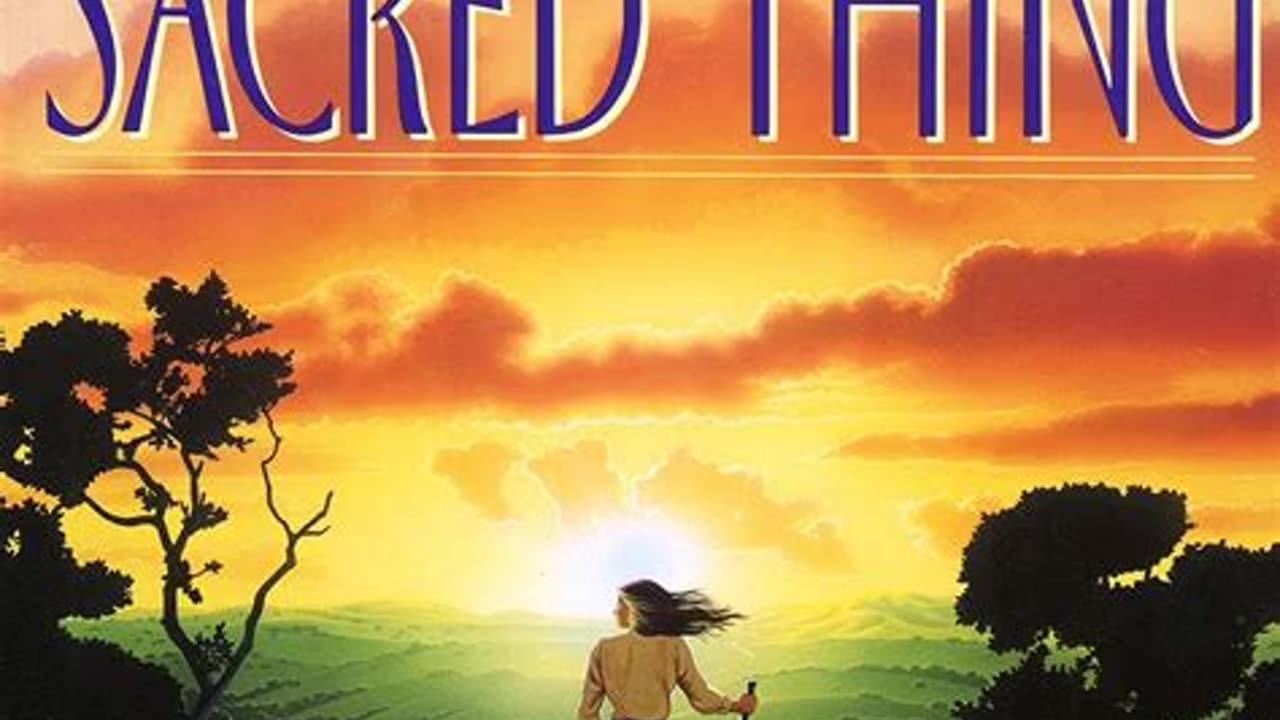Premium Only Content

The Fifth Sacred Thing by Starhawk | Summary
Buy Here: https://amzn.to/3qzqVZJ
""The Fifth Sacred Thing"" is a dystopian science fiction novel by Starhawk, published in 1993. The novel is set in a post-apocalyptic future and explores themes of environmentalism, social justice, and spirituality in the face of oppressive regimes.
The story is set in the city of San Francisco, which has become a haven of peace and harmony after a global ecological and social collapse. The city's residents have embraced a spiritual way of life that emphasizes interconnectedness with nature and the four sacred elements: earth, air, fire, and water.
However, the city faces a threat from the Southlands, a militaristic regime led by the Stewards. The Stewards are authoritarian rulers who seek to conquer San Francisco and impose their repressive ideologies on its people. The Stewards disregard the environment and exploit their resources, leading to widespread suffering and injustice.
As the Stewards' invasion approaches, the residents of San Francisco must decide how to defend their way of life. The novel follows a diverse cast of characters, including Maya, Madrone, Bird, and others who are determined to protect their city and stand up against the tyranny of the Stewards.
The story explores the tensions between different approaches to conflict resolution—nonviolence and direct action. Maya, a healer and leader in San Francisco, believes in the power of nonviolent resistance and seeks to find a way to avoid bloodshed. On the other hand, Madrone, a younger member of the community, is willing to engage in more aggressive tactics to defend their city.
Throughout the novel, the characters' personal struggles, relationships, and ideologies intersect with larger themes of ecological responsibility, social justice, and the power of community. The city's residents draw upon their connection to the elements and their spiritual beliefs to guide their actions in the face of adversity.
""The Fifth Sacred Thing"" offers a vision of a society built on compassion, respect for nature, and a commitment to justice. The novel's exploration of the tension between oppressive regimes and those who resist them resonates with contemporary discussions about the importance of environmental stewardship, social equity, and collective action.
Starhawk's storytelling weaves together themes of spirituality, activism, and hope in a narrative that encourages readers to reflect on the potential for positive change in the face of daunting challenges. The novel's emphasis on the interconnectedness of all life and the power of unity underscores its call for a more just and harmonious world."
-
 1:03:27
1:03:27
Glenn Greenwald
5 hours agoUK Pressures Apple to Break Encryption in Major Privacy Clash; How Dems Can Win Back the Working Class: With Former Bernie Sanders Campaign Manager Faiz Shakir | SYSTEM UPDATE #419
30.3K34 -
 47:39
47:39
Michael Franzese
3 hours agoJewelry King Trax NYC EXPOSES How the Powerful Steal from You
32.6K7 -
 LIVE
LIVE
Slightly Offensive
3 hours agoCandace REDPILLS the Masses in BOMBSHELL Theo Von Interview | Guest: Shane Cashman
1,037 watching -
 LIVE
LIVE
megimu32
2 hours agoON THE SUBJECT: IRL Streamers Attacked & Nostalgic Animal Movies That Made Us Cry
340 watching -
 1:00:54
1:00:54
The Tom Renz Show
6 hours agoMore Epstein/FBI, a Scary Trade War, & the Dem Echo Chamber
829 -
 40:43
40:43
Kimberly Guilfoyle
7 hours agoDems Double Down on Delusion-Why? Live with Tony Kinnett & Bo French | Ep.202
61.7K30 -
 1:28:42
1:28:42
Redacted News
5 hours agoBREAKING! SOMETHING BIG IS HAPPENING IN EUROPE ALL OUT WAR IS COMING AGAINST RUSSIA, TRUMP FURIOUS
108K260 -
 47:50
47:50
Candace Show Podcast
6 hours agoBREAKING: Judge Makes Statement Regarding Taylor Swift's Text Messages. | Candace Ep 155
94.3K104 -
 DVR
DVR
Josh Pate's College Football Show
2 hours agoCFB’s Most Hated Teams | FSU & Clemson Future | Big Ten Win Totals | Star Rankings Overrated?
5.76K -
 1:33:47
1:33:47
CatfishedOnline
4 hours agoGoing Live With Robert - Weekly Recap
19.4K